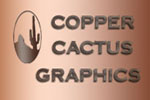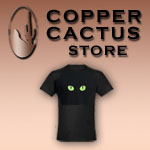Cyphernaut - Adjective Endings(German-Deutsch)
Adjectives are words which modify nouns. There are two kinds of adjectives that will be covered in this section: predicate and attributive.
The first kind of adjective is the predicate adjective. This adjective modifies the subject of the sentence and takes no endings. In the sentence, Das Hemd ist blau (The shirt is blue), the predicate adjective is blau and has no ending. Generally, predicate adjectives follow the verbs bleiben(to stay), sein(to be) or werden(to become).
The second kind of adjective is the attributive adjective. To native German speakers, these adjective endings are 'kein Problem'. But they seem to give fits to many English speakers. That's because the declension of attributive adjectives depends not only on the gender of the noun it modifies, but also number, case and if it's preceded by an indefinite article or ein-word, a definite article or der-word, or no article. If the adjective is preceded, then the article, ein-word or der-word must also have the correct ending. The possible choices for an attribute adjective are:
- Preceded by definite article or der-word
- Preceded by indefinite article or ein-word
- Unpreceded
To find out more about definite articles, indefinite articles, ein-words and der-word, see the guide page on articles.
The tables presented below illustrate these endings. The first table covers adjectives preceded by definite articles and der-words. The second table displays adjectives preceded by indefinite articles and ein-words. One can see a pattern emerge in these first two tables. In the dative and genitive cases, the adjective endings are all -en. The plural and masculine accusative are also -enas well as the plural nominative. This leaves a kind of 'Oklahoma' shape for the nominative masculine, neuter and feminine endings augmented with the neuter and feminine accusative. The only differences in the two tables are that in the first table, the preceded adjective takes an -e for the nominative case for masculine, neuter and feminine preceded adjectives and neuter and feminine accusative. In the second table, the adjective for the masculine nominative adds an -er, while the neuter nominative and accusative adds an -es. The third table shows the endings for an unpreceded adjective.
The mnemonic tables presented last show the aformentioned patterns with the hope of making it easier to memorize the endings. Using only the last letter of the endings, the 'Oklahoma' shape is shown clearly in the preceded adjective tables. You'll also notice that the mnemonic table for the unpreceded adjective shows a pattern similar to the one for the mnemonic table for the ending pattern for definite articles, indefinite articles, ein-words or der-words with the only difference coming in the genitive masculine and neuter.
Table Notes: Nouns add an -n in the dative plural, unless the plural already ends in -n or -s. Most nouns in the genitive masculine and genitive neuter add an -es(one syllable) or -s(two or more syllables). Exceptions include words such as das Herz-the heart(-ens), der Herr-the gentleman(-n), der Name-the name(-ns), der Nachbar-the neighbor(-n), der Mensch-the man(-en) and der Friede-the peace(-ns).
Abbreviations used in the table are:
- M for masculine
- F for feminine
- N for neutral
- PL for plural
| Adjectives Preceded By Definite Article or Der-Words | ||||
|---|---|---|---|---|
| Case | M | N | F | PL |
| Nominative | der neue Hut | das neue Auto | die neue Hose | die neuen Schuhe |
| Accusative | den neuen Hut | das neue Auto | die neue Hose | die neuen Schuhe |
| Dative | dem neuen Hut | dem neuen Auto | der neuen Hose | den neuen Schuhen |
| Genitive | des neuen Hutes | des neuen Autos | der neuen Hose | der neuen Schuhe |
| Adjectives Preceded By Indefinite Article or Ein-Words | ||||
|---|---|---|---|---|
| Case | M | N | F | PL |
| Nominative | ein neuer Hut | ein neues Auto | eine neue Hose | meine neuen Schuhe |
| Accusative | einen neuen Hut | ein neues Auto | eine neue Hose | meine neuen Schuhe |
| Dative | einem neuen Hut | einem neuen Auto | einer neuen Hose | meinen neuen Schuhen |
| Genitive | eines neuen Hutes | eines neuen Autos | einer neuen Hose | meiner neuen Schuhe |
| Unpreceded Adjectives | ||||
|---|---|---|---|---|
| Case | M | N | F | PL |
| Nominative | guter Wein | gutes Brot | gute Wurst | gute Salate |
| Accusative | guten Wein | gutes Brot | gute Wurst | gute Salate |
| Dative | gutem Wein | gutem Brot | guter Wurst | guten Salaten |
| Genitive | guten Weines | guten Brotes | guter Wurst | guter Salate |
| Ending Pattern for Adjectives Preceded by Definite Articles or Der-Words | ||||
|---|---|---|---|---|
| Case | M | N | F | PL |
| Nominative | r / e | s / e | e / e | e / n |
| Accusative | n / n | s / e | e / e | e / n |
| Dative | m / n | m / n | r / n | n / n |
| Genitive | s / n | s / n | r / n | r / n |
| Ending Pattern for Adjectives Preceded by Indefinite Articles or Ein-Words | ||||
|---|---|---|---|---|
| Case | M | N | F | PL |
| Nominative | x / r | x / s | e / e | e / n |
| Accusative | n / n | x / s | e / e | e / n |
| Dative | m / n | m / n | r / n | n / n |
| Genitive | s / n | s / n | r / n | r / n |
| Ending Pattern for Unpreceded Adjectives | ||||
|---|---|---|---|---|
| Case | M | N | F | PL |
| Nominative | r | s | e | e |
| Accusative | n | s | e | e |
| Dative | m | m | r | n |
| Genitive | n | n | r | r |





